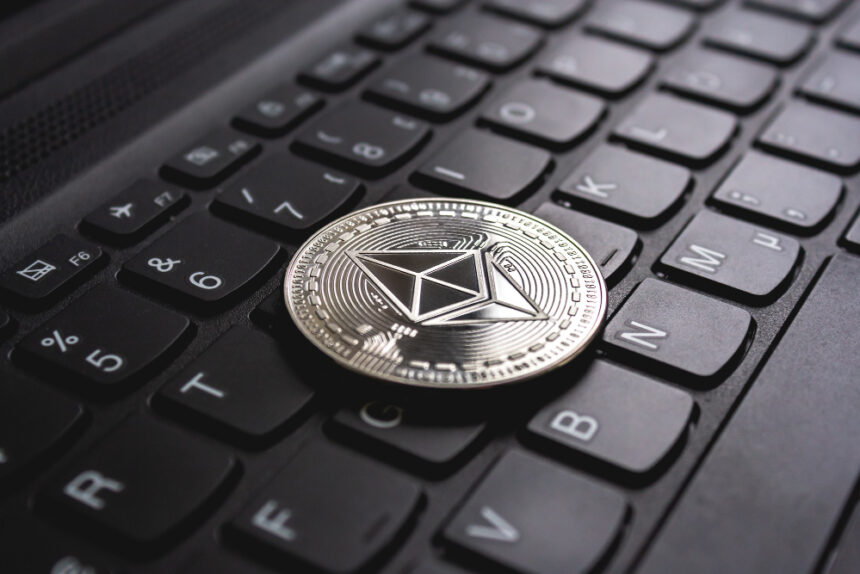The Future is Now: Understanding the Metaverse and Web3
As we move deeper into the digital age, two terms have rapidly emerged as pivotal components of our online future—Metaverse and Web3. While still evolving, they represent a profound shift in how we interact with technology, communicate with others, and even perceive ownership in a virtual world.
The Metaverse is not merely a video game or a digital playground; it is an interconnected virtual universe where people can socialize, work, shop, attend events, and engage in real-world economic activities using digital representations of themselves known as avatars. Web3, on the other hand, represents a decentralized internet ecosystem built on blockchain technology, offering users greater control over their data, identity, and digital possessions.
Together, the Metaverse and Web3 are reshaping our digital experiences. Central to this transformation is cryptocurrency, which plays a crucial role in enabling digital ownership, transactions, and participation in this emerging digital frontier.
How Web2 Led Us Here: A Quick Recap
Before diving into how cryptocurrency empowers ownership in the Metaverse and Web3, it’s essential to understand how the internet evolved to this point. The first iteration of the internet, Web1, was static and read-only, with limited interactivity. Web2 introduced dynamic content, social media platforms, user-generated content, and centralized services.
While Web2 revolutionized communication and commerce, it also led to serious concerns over data privacy, content ownership, and control. Corporations monopolized digital spaces, and users had little to no real ownership of their online identities or creations. This paved the way for a more democratic, decentralized internet—Web3.
The Shift from Centralized to Decentralized
The fundamental difference between Web2 and Web3 lies in decentralization. In Web3, users interact directly with decentralized applications (dApps) on the blockchain, without relying on intermediaries like Facebook, Google, or Amazon.
Decentralization offers:
- Ownership: Users own their data, digital assets, and online identity.
- Security: Blockchain technology ensures transparency and trust.
- Interoperability: Assets and identities can move freely across platforms.
These advantages are the backbone of how the Metaverse functions today, and why cryptocurrencies are an essential part of the equation.
Cryptocurrency: The Economic Engine of the Metaverse
Cryptocurrency is far more than digital money; it is the lifeblood of the decentralized internet. In the Metaverse, crypto serves as:
- Currency: For purchasing virtual land, clothing for avatars, tickets to events, and more.
- Reward Mechanism: In play-to-earn games and decentralized applications, users are incentivized with tokens.
- Proof of Ownership: NFTs (non-fungible tokens), powered by cryptocurrencies, validate ownership of virtual assets.
Without cryptocurrency, the Metaverse would be a walled garden controlled by corporations. With it, users gain autonomy, economic agency, and the ability to build wealth within digital spaces.
NFTs and Digital Property Rights
In 2025, NFTs are no longer speculative art pieces or collectibles. They are integral to proving digital ownership in the Metaverse. An NFT can represent anything—a virtual house, a piece of digital artwork, a character skin, or even access to a VIP area in a virtual concert.
The unique aspect of NFTs is their verification on the blockchain. Once minted, an NFT is permanently tied to a wallet address, allowing the holder to verify their ownership and use or trade it as they wish.
This advancement enables a new class of digital entrepreneurs and creators who can earn a living solely from virtual goods and services, backed by blockchain-enforced ownership rights.
The Rise of Digital Real Estate
In the Metaverse, real estate has taken on a whole new meaning. Platforms like Decentraland, The Sandbox, and Otherside allow users to purchase plots of virtual land using cryptocurrency. These parcels of land are NFTs themselves and can be built upon, leased, sold, or monetized in various ways.
Digital real estate is not merely a novelty. Brands, influencers, and regular users alike are creating virtual spaces—art galleries, concert venues, retail shops—transforming digital landscapes into bustling economic zones. In 2025, digital real estate investments are being treated with the same seriousness as traditional real estate, especially given the potential for significant returns.
Avatars and Identity in the Web3 Metaverse
One of the most personal aspects of the Metaverse is the creation and ownership of avatars. These digital identities are more than just game characters; they are extensions of our personalities and brands in virtual environments.
With Web3, avatars are no longer confined to a single platform. Users can own their avatars, customize them, and use them across different Metaverse applications, from games to virtual workplaces.
Identity in Web3 is verified through blockchain wallets and smart contracts, eliminating the need for traditional login credentials. This form of decentralized identity (DID) allows users to maintain control over their profiles, credentials, and data, making them resistant to hacks and data breaches common in Web2 systems.
Gaming and the Play-to-Earn Economy
Gaming is one of the primary gateways into the Metaverse. In 2025, the play-to-earn model has matured significantly, offering real-world income opportunities to millions of users globally.
Games built on blockchain technology allow players to earn tokens or NFTs that have actual market value. These tokens can be traded, staked, or reinvested in the game’s ecosystem, creating a circular economy that benefits both players and developers.
This economic shift has opened the door for players in developing countries to earn a living wage through gaming, something unimaginable just a few years ago. Cryptocurrencies are the core medium of exchange in these ecosystems, making them indispensable for the growing Metaverse economy.
Social Interactions and Community Building
The Metaverse and Web3 aren’t just about economics—they’re also social environments where communities form organically around shared interests, projects, and goals. From Decentralized Autonomous Organizations (DAOs) to virtual music festivals, crypto enables collaborative spaces where participants have governance rights and financial stakes.
DAOs represent a new form of digital organization governed by smart contracts and community voting, allowing for democratic decision-making in everything from project funding to virtual city planning.
In a Web3 social network, users are not the product—they are stakeholders. Participation is often rewarded through tokens, creating communities that are not only socially engaging but economically incentivized as well.
Privacy, Security, and Data Sovereignty
One of the strongest appeals of Web3 and blockchain technology is the promise of data sovereignty. In contrast to the surveillance-driven models of Web2, where user data is harvested and monetized, Web3 empowers individuals to own their information.
Cryptographic wallets, zero-knowledge proofs, and decentralized storage ensure that users control what information they share, with whom, and under what terms. In 2025, many digital natives prefer Web3 platforms for precisely this reason—they’re tired of giving away their data for free.
Cryptocurrency and blockchain serve as the foundation for secure digital interactions in the Metaverse, where trust is algorithmic, not institutional.
Real-World Applications and Crossovers
The line between virtual and physical is blurring rapidly. Brands are entering the Metaverse not just for marketing but to sell products, host events, and offer customer support. Virtual goods often come with real-world equivalents—buy a sneaker NFT, and you get the actual pair shipped to your door.
Blockchain-based loyalty programs, metaverse-exclusive product drops, and immersive brand experiences are becoming commonplace. Even traditional industries like real estate, healthcare, and education are leveraging the Metaverse for virtual tours, telemedicine, and online learning with crypto-based verification systems.
Regulation, Risks, and the Road Ahead
As the Metaverse and Web3 expand, so does regulatory scrutiny. Governments worldwide are grappling with how to classify digital assets, ensure consumer protection, and prevent money laundering.
In 2025, some regions have established clear frameworks, offering licenses for crypto exchanges and defining the tax treatment of NFTs and Metaverse earnings. However, the regulatory environment remains fragmented, with significant disparities between jurisdictions.
Users and businesses must navigate this landscape cautiously. Still, most experts agree that well-crafted regulation can fuel innovation rather than hinder it by establishing trust and clarity.
The Role of Stablecoins and CBDCs
To mitigate the volatility of traditional cryptocurrencies, stablecoins and central bank digital currencies (CBDCs) have become essential tools within the Metaverse. Stablecoins offer the familiarity of fiat with the flexibility of crypto, making them ideal for daily transactions in virtual environments.
CBDCs are being piloted in several countries and integrated into Metaverse ecosystems, potentially offering state-backed alternatives to decentralized currencies. While not as private or permissionless as crypto, they offer the assurance of legal tender status and regulatory compliance.
Education and Onboarding the Masses
For the Metaverse and Web3 to reach their full potential, user education is critical. In 2025, a wide array of tools, courses, and platforms are available to teach users about cryptocurrency wallets, NFTs, DAOs, and other key components of the decentralized web.
Many platforms have introduced intuitive interfaces and gamified learning processes to attract non-technical users. As a result, user onboarding is faster, smoother, and more inclusive than ever before.
Education initiatives by governments, universities, and private companies are also helping to bridge the gap, making it easier for people to participate confidently in this new digital economy.
The Environmental Question: Is It Sustainable?
Sustainability has long been a criticism of blockchain technology. However, in 2025, most major platforms have transitioned to energy-efficient consensus mechanisms like Proof-of-Stake (PoS). New developments in green blockchain solutions, carbon offsetting, and renewable energy integration are helping reduce the environmental footprint.
Metaverse platforms are also exploring virtual experiences as eco-friendly alternatives to physical events, potentially saving on travel emissions and physical resources.
Final Thoughts: Embracing the Future of Ownership
The evolution of the internet into the realms of Metaverse and Web3 is not a fleeting trend; it’s a seismic shift in how we engage with technology, society, and the economy. Cryptocurrency is the linchpin that makes decentralized digital ownership possible.
From avatars to digital real estate, from gaming tokens to virtual concert tickets, the new paradigm of ownership is borderless, programmable, and open to all.
As we navigate this new frontier in 2025, the blend of Metaverse and Web3 offers not just entertainment and convenience, but the promise of a more inclusive, democratic, and empowered digital future—one where users are no longer just participants but rightful owners in the internet they help create.
Would you like this turned into a downloadable Word doc or HTML format for posting on your blog?

